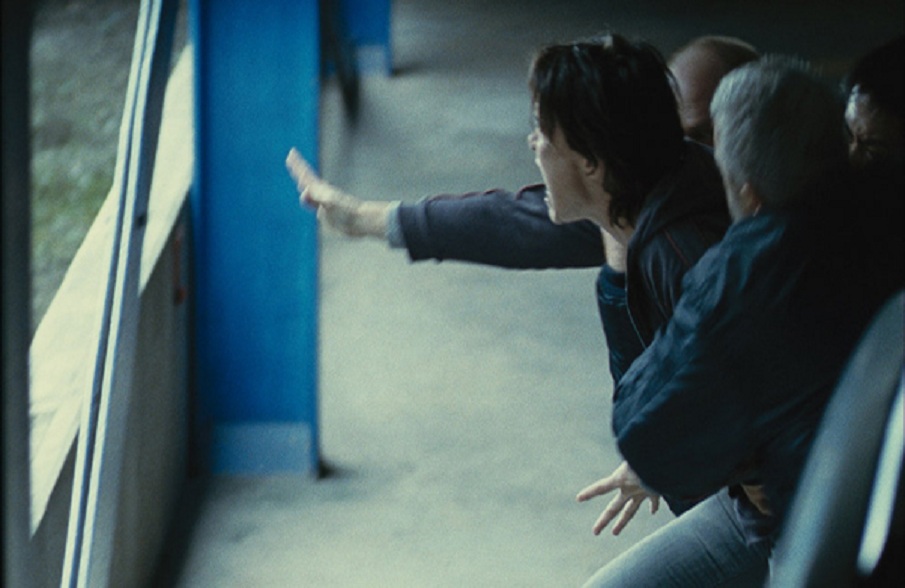Illégal is the second feature film by Olivier Masset-Depasse, a Belgian director born in Charleroi in 1971. The film is a co-production between Belgium, France and Luxembourg with an overall budget of around €2.2 million. The production focused on the need to mirror the physical and human reality of the places and characters in the story to the utmost, even if the temporary detention centre for migrants, where most of the action takes place, was reconstructed in an abandoned industrial building.
The film was presented at the Cannes Festival’s Quinzaine des Réalisateurs in 2010 and the Belgians chose it as a candidate for the Oscars, in the category of best foreign film, although it didn’t reach the top-five shortlist.
Before Illégal, Masset-Depasse directed two short films, Chambre Froide in 2000 and Dans l’ombre in 2004, both featuring decisive female characters who are determined to reach their objectives at all costs. Both films were great critical successes, picking up around 60 prizes and awards at various European and international festivals. Following this success, the Belgian director made his first feature film in 2006 entitled Cages, which is the story of a passionate but destructive love, and was invited to many international festivals, including Toronto and Rome. The film was met with great critical acclaim in Belgium and created great excitement among the public.
A direct link between Masset-Depasse’s previous films and Illégal is, once again, the centrality of a female character, who must fight to defend her identity and emotions. What stands out most is the presence in all four films of the same leading actress, Anne Coesens, whom the Belgian director describes in the following way: “She is a Stradivarius. With an instrument like that, you don’t change a thing: If you play it, you never tire of it. I have shot all my films with her. I think I understand what rings true in a role, but with Anne I can really go further. With her, more than with others, I truly become an actor’s director. Our symbiosis is a very positive influence on my films, particularly on this one.”
Presenting the film, Masset-Depasse explained how the idea came about to put an illegal immigrant at the centre of the story. “Many films have shown what people are ready to go through to stay here, in our country. One day, I discovered that I was living 15 kilometres from an administrative detention centre for those who have been found without the documents required to live in our country. I wanted to find out more. So I was often in the field, meeting illegal immigrants, but also immigration agents and the police. I decided not to make a documentary, but a work of fiction, because it allows a deeper exploration of the point of view of the various characters: I was trying to achieve something more universal. Moreover, I wanted to treat the subject like a psychological thriller. While writing the film, I often thought about Alan Parker’s Midnight Express, although I wanted the film to be realistic and based on in-depth research. Everything that is seen in the film actually happened, at least once.”
After Illégal, in 2015, Masset-Depasse made the TV movie Le sanctuaire presented in January at the International Festival of Audio-visual Programming in Biarritz.
Michele Marangi






































